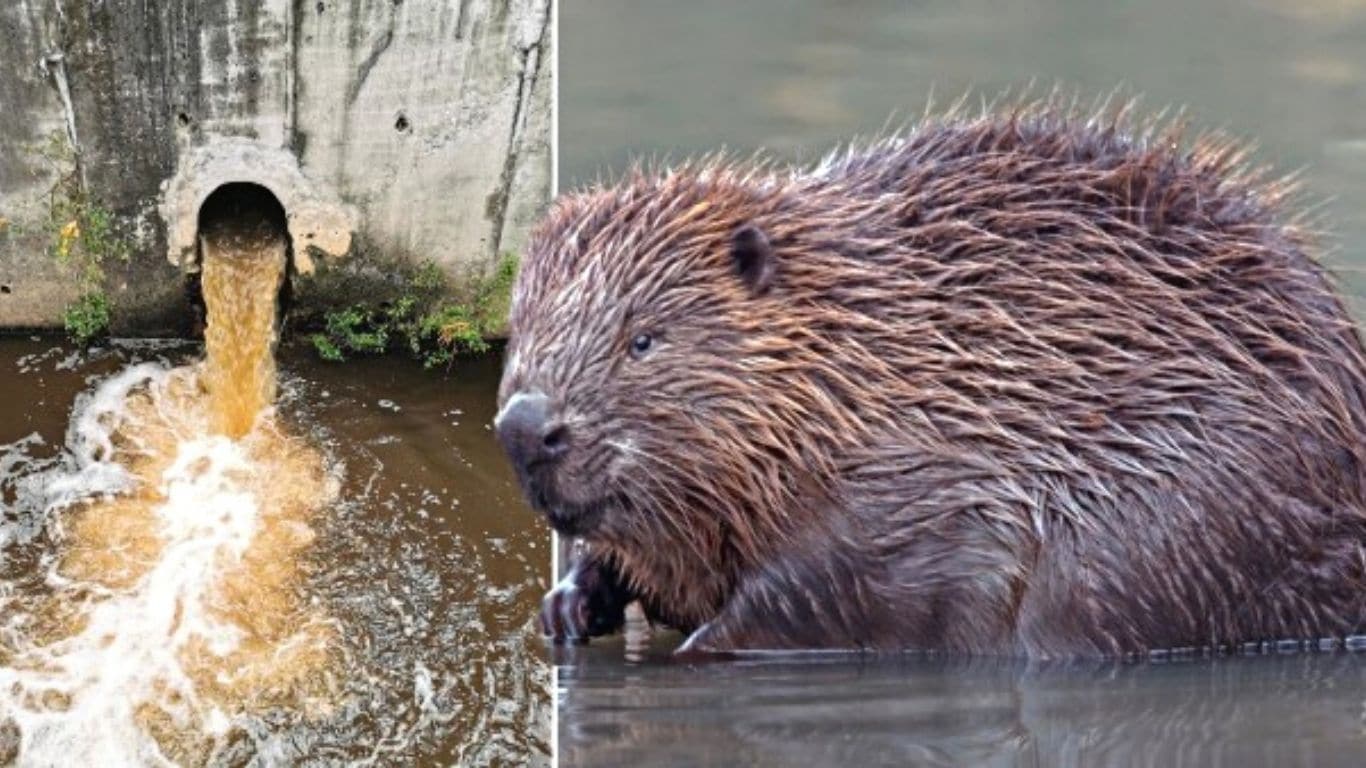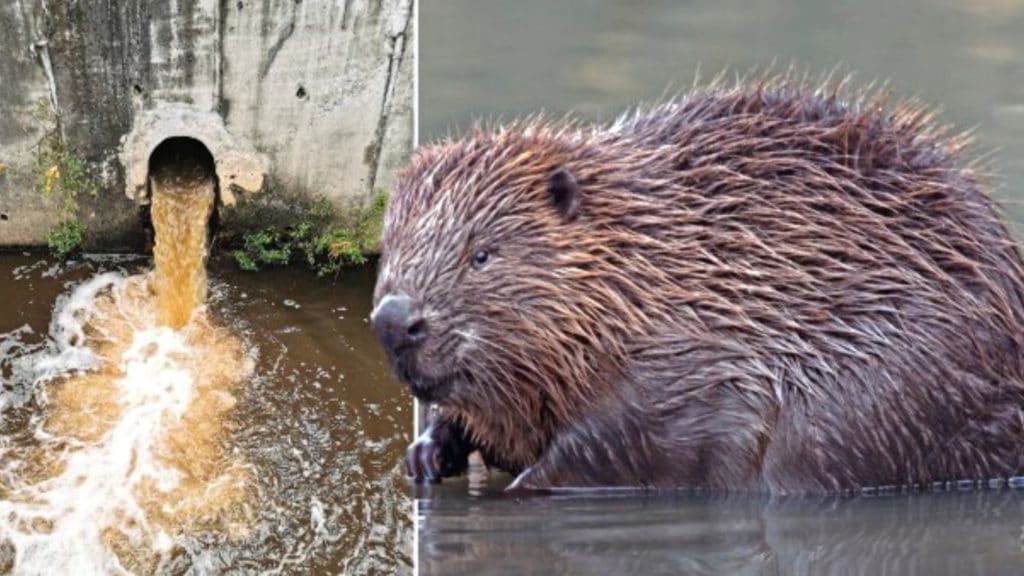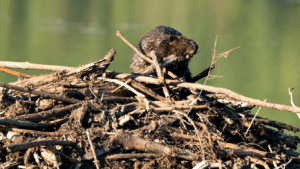England’s sole wild beaver colony is currently under threat by raw sewerage flowing downstream from one of the country’s worst overflow sites.
According to wildlife experts, the pollution from Honiton treatment works in Devon could cause serious health complications in the 20 beaver families living along the River Otter. The area is the site of a successful beaver reintroduction by the Devon Wildlife Trust (DWT) six years ago and is the first time in 400 years that wild beavers have lived on an English river.
In 2020, the animals were given the permanent right to remain by The Department for Environment, Food and Rural Affairs (Defra). Since their relocation, the species have thrived in the region – but now their future may be in peril.
Recently, footage emerged of untreated waste pouring into Hampshire’s Langstone Harbour unabated for 49 hours. "There is a whole range of nasties contained in sewage that could potentially impact them, like viruses and bacteria,” said Mark Elliott of the DWT, referring to the spillages as a ‘massive concern’.
In total, 137 spillages took place last year, resulting in 2,442 hours of raw spillage into the river where the beavers live, eat, sleep and reproduce. The waste could result in fatal infections and disease for the beavers.
Britain’s sewage system, installed during the Victorian era, is unable to cope with large amounts of rainwater, and water companies are thus legally allowed to release this water and smaller amounts of raw sewage directly into rivers and the sea. This is to prevent waste clogging up streets and homes.
However, this release is to the detriment of local wildlife and, following public outcry, water companies will soon be compelled to limit the amount they dump.
There are two living species of beaver – the North American beaver, native to that region, and the Eurasian beaver, native to Britain and once widespread in much of the UK. The latter is recovering from near-extinction after relentless hunting for its fur, meat and 'castoreum', a secretion used in perfumes, medicine and food.
Today, beavers are once again thriving in certain parts of Britain and are considered 'nature's engineers' for their innate ability to restore wetland habitats by building dams and felling trees. These activities promote sustainable water sources in the environment by slowing, storing and filtering water, which limits downstream flooding and attracts other wildlife to these regions.
According to a five-year study published last year by the University of Exeter, beavers reintroduced to the river have successfully reduced the risk of floods and have helped to increase other wildlife numbers.
“It’s horrific that England’s first successful beaver colony in 400 years is being subjected to massive volumes of raw waste,” says Adrienne West of Animal Survival International. “While they work to restore habitats, we flood them with dangerous viruses and bacteria. This is a serious cause for concern.”
Image: PA/Shutterstock





